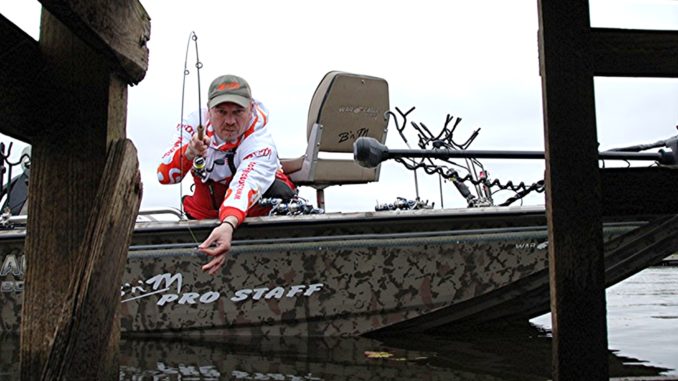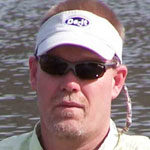
As they do in spring and summer, boat docks provide structure, cover, food and a variety of water depths so crappie can find comfortable water temperatures during the winter.
The challenge is finding the right dock, locating fish and coercing them from that location to the livewell. That’s where shooting docks comes into play.
Finding the right dock to shoot in the winter is no longer a game of checking every dock with multiple casts until you find the fish. With today’s side imaging technology, half the battle is won by locating fish on the sonar screen.
Shooting docks in the winter means the fish are probably going to be deep as well as tucked underneath the dock. The shot is followed by a lot of wait time while the jig sinks.
Line-watching in the winter is key to detecting bites. When the line suddenly stops sinking after a shot over deep water, more than likely, a fish has sucked it in. Set the hook. Most times, you’ll never feel a bite.
A perfect jig for winter dock shooting does not exist; it’s a matter of matching your bait, and its weight with your situation. Jig choices boil down to two categories: solid body and hair.
Solid-body jigs skip, which is valuable in tight spots with a low ceiling. You can aim the jig, hit the water and skip the jig an additional 15 or 20 feet into the cover. Hair jigs do not skip as well as a solid-body jig, but they do provide more action, “breathing” as they fall. Crappie are more likely to react to a slowly falling bait that appears alive.
To be successful requires trying to figure out a pattern, and every day, is may be a little different. It’s frequently a matter of trial-and-error. Fortunately, crappie tend to school tightly during winter, and one bite might be all you need to find that pattern.




Be the first to comment